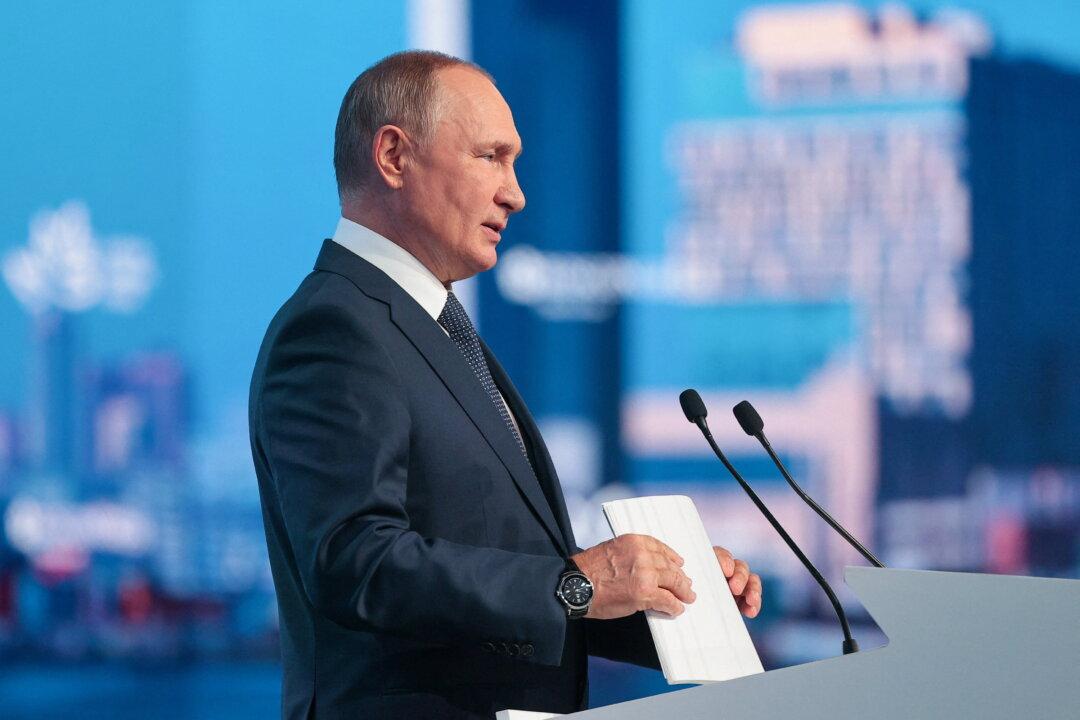VLADIVOSTOK, Russia—President Vladimir Putin said on Wednesday that Russia and the developing world had been “cheated” by a U.N.-brokered Ukrainian grain export deal, vowing to look to revise its terms to limit the countries that can receive shipments.
Speaking at an economic forum in the city of Vladivostok in Russia’s Far East, Putin took aim at the deal, brokered by Turkey and the United Nations, saying Ukrainian grain exports were not going to the world’s poorest countries as originally intended.





